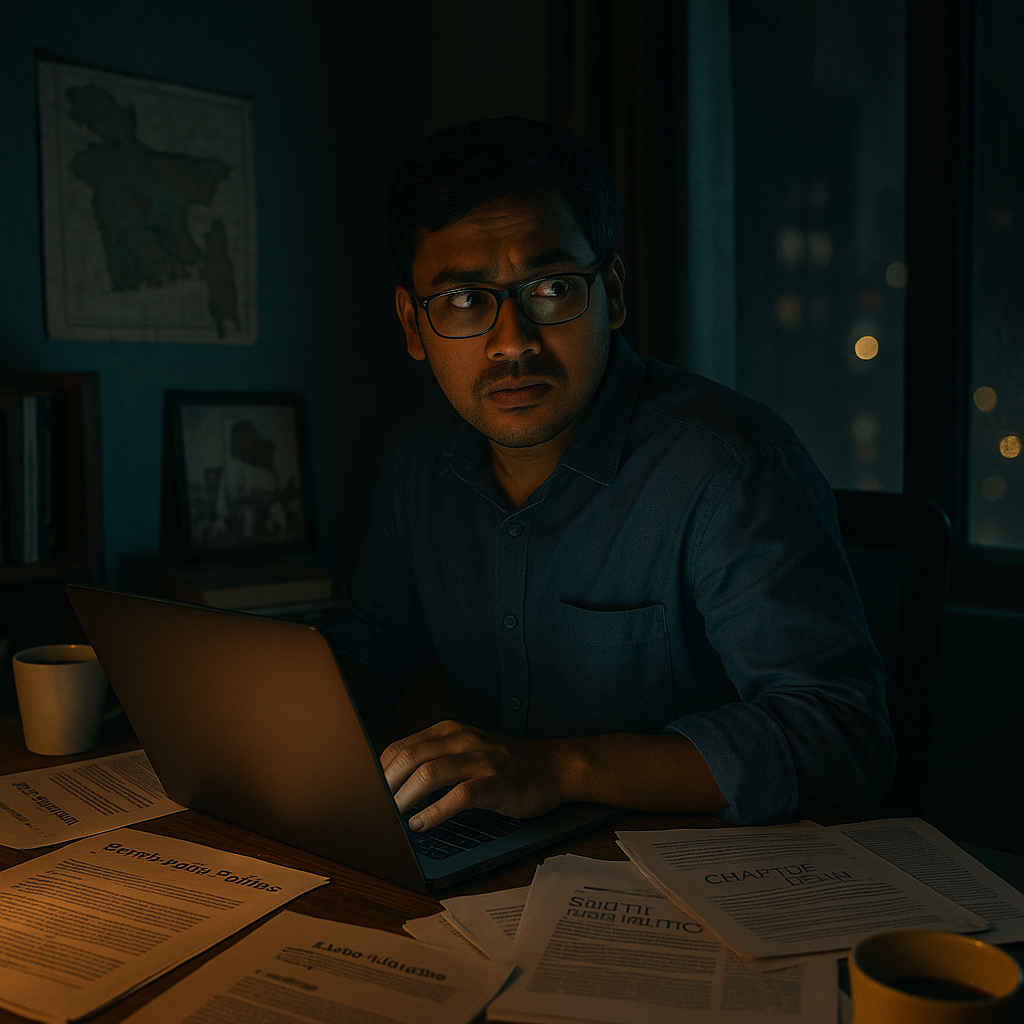
Bangladesh stands at a crossroads. A nation born from a liberation war that championed secular ideals now witnesses an alarming erosion of those very principles. While the constitution still pays lip service to secularism, the reality on the ground tells a different story—one where rationalists, freethinkers, and progressive voices navigate a landscape of fear, where the next knock on the door might be an assassin’s rather than a neighbor’s.
A Culture of Impunity: When Words Become Death Sentences
The brutal killings of secular bloggers between 2013-2016 weren’t isolated incidents—they formed a calculated campaign to purge Bangladesh of liberal thought. What makes these attacks particularly chilling is their execution:
- The Machete as a Symbol: Unlike anonymous shootings, militants chose brutal, public hacking attacks to maximize terror. The 2015 murder of Faisal Arefin Dipan, publisher of secular books, inside his Dhaka office sent a clear message: even facilitating free thought is punishable by death.
- The Digital Fatwa Ecosystem: Before physical attacks come online threats. Platforms like Facebook become hunting grounds where extremists crowdsource targets. Blogger Asif Mohiuddin survived a 2013 stabbing only after being named on jihadist hit lists for months.
- Judicial Farce: Take the case of Ahmed Rajib Haider’s killers—while low-level operatives were convicted, the ideological architects like Mufti Jasimuddin Rahmani (head of Ansarullah Bangla Team) walked free until his 2022 arrest. Such delayed justice is itself a form of complicity.
The State’s Dangerous Double Game
The Awami League government’s approach resembles a high-wire act:
- Selective Crackdowns: After international outcry over the 2016 Holey Artisan Bakery attack, hundreds were arrested. Yet, the same urgency disappears when victims are local secularists rather than foreign diplomats.
- The Blasphemy Law Paradox: While rarely enforced, Section 295A of the penal code (insulting religious beliefs) hangs like a sword over secular discourse. Its mere existence emboldens extremists to take “extrajudicial action.”
- The Madrasa Factor: Over 15,000 unregistered Qawmi madrasas—many preaching hardline ideologies—operate with minimal oversight. When the government finally recognized their degrees in 2017, it legitimized their influence.
Glimmers of Resistance
Despite the risks, pockets of defiance persist:
- The Blogger Collective: Groups like “Mukto-Mona” (Free Mind) continue operating from exile, with members using VPNs and pseudonyms to debate religion safely.
- University Underground: At Dhaka University’s philosophy and social science departments, professors discreetly circulate banned books like Taslima Nasrin’s works through encrypted drives.
- Art as Protest: Playwrights like Mamunur Rashid stage allegorical dramas critiquing fundamentalism, using historical metaphors to bypass censorship.
A Path Forward: Beyond Empty Rhetoric
Real protection requires systemic change:
1. Reforming Law Enforcement
- Create a specialized police unit for intellectual protection (modeled after Pakistan’s controversial Ahmadiyya security force but for secular voices)
- Mandate threat assessments for all writers receiving extremist backlash
2. International Leverage
- Tie trade benefits (like EU’s Everything But Arms scheme) to concrete progress in secularist protection cases
- Expand the US’ “Journalist Protection Status” visa program to cover Bangladeshi atheist writers
3. Counter-Narratives
- Fund secular journals like the late Ahmad Sharif’s “Shahitya Sangsad” that taught comparative religion critically
- Reintroduce the 1972 constitution’s original secular preamble in school textbooks
The Silent Exodus
An uncounted tragedy unfolds as Bangladesh’s best minds flee. Over 78 secular writers sought asylum abroad between 2015-2020 (per PEN International). Each departure isn’t just a personal escape—it’s a drain on the nation’s intellectual capital. When a country loses its thinkers, it loses its future.
The question isn’t whether Bangladesh can return to its secular roots—but whether it can afford not to.